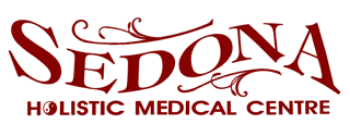Alcohol and Drug Rehabs
/What to Look for in Alcohol and Drug Abuse Rehabs
In general, the longer and more intense the drug use, the longer and more intense the treatment you may need. When evaluating the many types of substance abuse treatment programs, remember that everyone is different with different needs.
Support and long-term follow-up are crucial to recovery regardless of a program’s length be it weeks or months. A quality treatment program addresses the emotional pain and other life problems that contribute to your addiction besides addressing the drug abuse.
You might see advertisements for programs in tranquil settings with gorgeous views when you start looking for substance abuse treatment. Amenities like that are nice to have, though they likely come with a big price tag. Focus on what is truly important: appropriate licensing, quality of care during the program, follow-up services, and staff credentials. Things to check include:
- Program accreditation and licensing. Make sure the treatment program is accredited by the state it’s in.
- The effectiveness of the program's treatment methods. Treatment centers should have at least some statistics on their success rates, preferably from an objective outside agency.
- Type of aftercare services to prevent relapse. Is there a well-run aftercare program? Does it provide referrals to other recovery services and support groups in the community? Also make sure that a staff member will collaborate with you to create a discharge plan before you leave the program.
An overview of substance abuse treatment programs
Residential treatment – Residential treatment involves living at a treatment facility while undergoing intensive treatment during the day. Residential treatment normally lasts from 30-90 days.
Counseling (Individual, Group, or Family) – Works best in conjunction with other types of treatment or as follow-up support. Therapy can help you identify the root causes of your drug use, repair your relationships, and learn healthier coping skills.
Intensive outpatient program (IOP) – Not a live-in treatment program, but it still requires a major time commitment. Intensive outpatient programs usually meet at least 3 days a week for 2-4 hours a day or more. The major focus is relapse prevention. These outpatient programs are often scheduled around work or school.
Partial hospitalization – Partial hospitalization is for people who require ongoing medical monitoring but have a stable living situation. These treatment programs usually meet at the hospital for 3-5 days a week, 4-6 hours per day.
Sober living – Normally follows intensive treatment like residential treatment. You live with other recovering addicts in a supportive drug-free environment. Sober living facilities are useful if you have nowhere to go or you’re worried that returning home too soon will lead to relapse.
Brief intervention – Only appropriate for those at risk for drug abuse or drug addiction, not those who have already developed a serious problem. Consists of several visits to a healthcare professional to discuss the harmful effects of drug abuse and strategies for cutting back.
Finding a substance abuse treatment program
Find out if your job offers an Employee Assistance Program with addiction counseling.
Call local health centers and known practitioners.
Call SAMHSA’s referral helpline
The Substance Abuse and Mental Health Services Administration (SAMHSA) of the U.S. Department of Health and Human Services offers an extensive listing of licensed, certified drug and alcohol treatment facilities. You can access the database in two ways:
- Use SAMHSA’s Substance Abuse Treatment Facility Locator to search online.
- Call the referral helpline operated by SAMHSA's Center for Substance Abuse Treatment:
- 1-800-662-HELP
- 1-800-662-9832 (Español)
- 1-800-228-0427 (TDD)
Another place to look is your State Substance Abuse Agency. States often have their own listings, toll-free hotlines, and information about accreditation. You can also ask your doctor or therapist about programs they recommend.
Finding a substance abuse treatment program in other countries
In the UK:
- Search NHS Support Services for rehab and counseling services in your area.
- Addaction offers a variety of programs around the country including rehab, one-to-one counseling, and group sessions.
- Action on Addiction offers residential and day treatment as well as aftercare programs.
In Australia:
- The Australian Department of Health and Ageing offers Alcohol and Drug Information Services in each State/Territory.
In Canada:
- Canadian Drug Rehab Centres offers a directory of treatment programs in Canada including government drug programs.
Paying for substance abuse treatment in the U.S.
Substance abuse treatment costs vary widely depending on your individual treatment needs, your insurance, and the facility. Here are some tips to help you pay for treatment:
- Check your insurance. If you have health insurance, call the number on the back of your card to ask about your mental health and substance abuse coverage. Find out what your out-of-pocket costs will be, including deductible and co-payment amounts.
- Look into programs that offer sliding scale or reduced payment options. Check with your state’s substance abuse agency or call SAMHSA’s helpline (1-800-662-HELP) to ask about affordable treatment in your area.
Resources and references
Finding substance abuse treatment and help
Seeking Drug Abuse Treatment: Know What to Ask – Helpguide guide to the questions you should ask when searching for the right treatment for a drug problem. (National Institute on Drug Abuse)
Addicted Kids; Our Lost Generation Drs. Cherie and Ronald Santasiero
Professional help for substance abuse treatment and recovery
In the U.S., search a directory of substance abuse services and treatment programs across the country, from the Substance Abuse & Mental Health Services Administration.
In the UK, find local drug addiction support from the NHS, or call the 24-hour Frank helpline on 0800 776600 for more information about drugs and the different options available for help and support.
In Australia, find drug and alcohol services in each State/Territory from the Department of Health & Aging.
In Canada, find treatment services from Canadian Centre on Substance Abuse.
